Ford to turn McDonald's coffee waste into sustainable autocomposites
Ford Motor Co. has teamed up with McDonald’s to turn the fast-food chain’s coffee chaff into automotive headlamp housings and other commercial car parts.
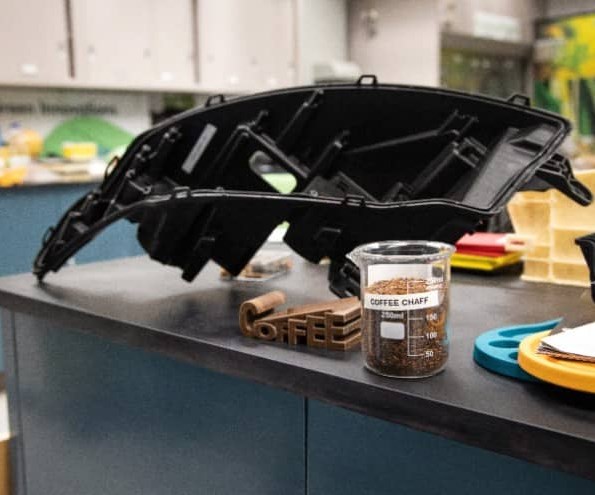
Source | Ford Motor Co.
In efforts toward sustainability, some people compost the waste from their morning coffee grounds. McDonald’s, on the other hand, is turning its coffee waste into automotive composites. Announced on Dec. 4, Ford Motor Co. (Dearborn, Mich., U.S.) has teamed up with fast-food chain giant McDonald’s USA (Chicago, Ill., U.S.) to turn coffee chaff — the dried skin of the coffee bean that peels off naturally during roasting — into commercial vehicle parts such as headlamp housings.
The companies found that chaff can be converted into a durable material reinforcement for vehicle parts. The process involves heating the chaff to high temperatures under low oxygen, combining it with plastic and other additives, and turning it into pellets that can then be molded into parts.
According to Ford, the chaff composite meets quality specifications for parts like headlamp housings and other interior and under hood components. The resulting components are also said to be about 20% lighter and require up to 25% less energy to produce during the molding process. Heat properties of the chaff component are also said to be significantly better than the currently used material.
McDonald’s says it will begin directing a significant portion of the coffee chaff produced at its North American locations to Ford for incorporation into vehicle parts.
“McDonald’s commitment to innovation was impressive to us and matched our own forward-thinking vision and action for sustainability,” said Debbie Mielewski, Ford senior technical leader, sustainability and emerging materials research team, in a press release. “This has been a priority for Ford for over 20 years, and this is an example of jump starting the closed-loop economy, where different industries work together and exchange materials that otherwise would be side or waste products.”
Ian Olson, senior director, global sustainability for McDonald’s, added, “Like McDonald’s, Ford is committed to minimizing waste and we’re always looking for innovative ways to further that goal. By finding a way to use coffee chaff as a resource, we are elevating how companies together can increase participation in the closed-loop economy.”
Other project partners include Varroc Lighting Systems, which supplies the headlamps, and Competitive Green Technologies, the processor of the coffee chaff.
This is the first time Ford has used coffee bean skins to convert into vehicle parts, but it isn’t the first time the company has repurposed waste materials and turned them into car parts. Check out “Autocomposites from waste: Garbage in, valuable, functional parts out” for more on how Ford and other automakers have explored the use of agricultural waste, lumber byproducts, coconut shells, lava rocks and more in their quest for sustainability.
Related Content
-
Plant tour: Middle River Aerostructure Systems, Baltimore, Md., U.S.
The historic Martin Aircraft factory is advancing digitized automation for more sustainable production of composite aerostructures.
-
Recycling end-of-life composite parts: New methods, markets
From infrastructure solutions to consumer products, Polish recycler Anmet and Netherlands-based researchers are developing new methods for repurposing wind turbine blades and other composite parts.
-
Why aren't composites synonymous with infrastructure?
The U.S. seems poised to invest heavily in infrastructure. Can the composites industry rise to the occasion?

.jpg;width=70;height=70;mode=crop)
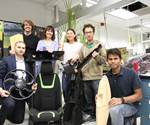
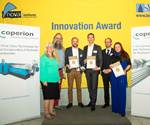








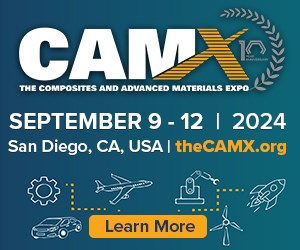
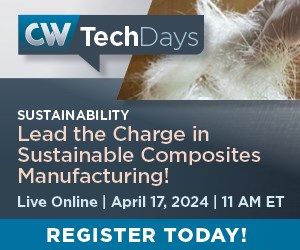

.jpg;maxWidth=300;quality=90)
